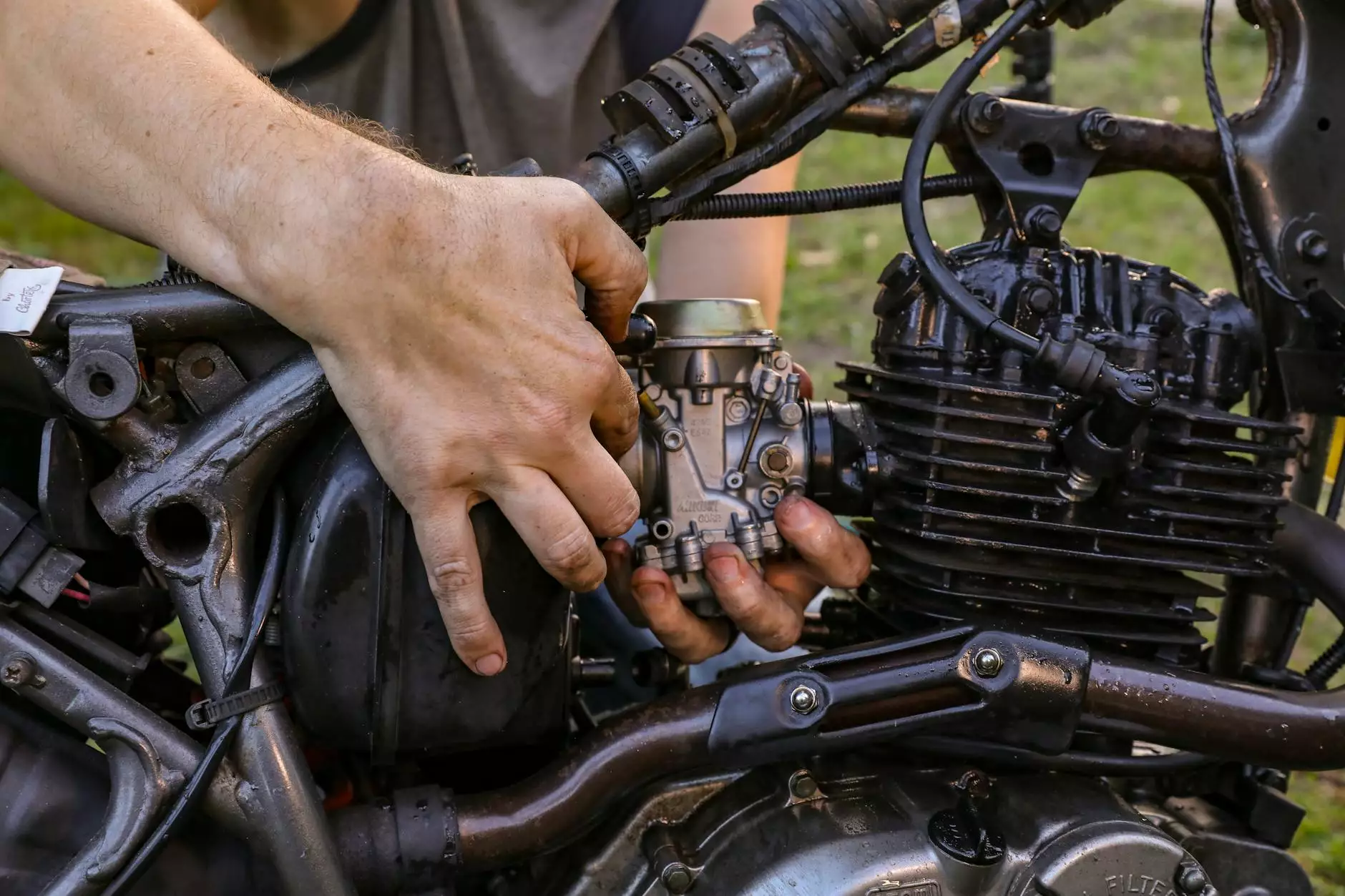The Art and Science of Plastic Injection Moldings in the Metal Fabrication Industry

In the ever-evolving landscape of manufacturing, plastic injection moldings have emerged as a pivotal process that bridges the gap between innovative design and practical application. As industries demand more complex geometries and tighter tolerances, businesses like deepmould.net are stepping up to deliver superior results through advanced manufacturing techniques. This article delves into the fundamentals of plastic injection moldings, their applications, benefits, and the critical role they play in the metal fabrication sector.
Understanding Plastic Injection Moldings
At its core, plastic injection molding is a manufacturing process that allows for the production of complex plastic parts with high precision. It involves injecting molten plastic into a mold—a hollow form that shapes the plastic as it cools and solidifies. This process has revolutionized the way products are designed and manufactured, and it is widely used across various industries including automotive, consumer goods, and medical devices.
The Injection Molding Process Explained
The process of plastic injection molding can be broken down into several key steps:
- Material Preparation: Plastic resin is prepared, usually in pellet form, and fed into the machine.
- Heating: The resin is heated until it becomes a molten liquid, at a temperature that allows it to flow easily.
- Injection: The molten plastic is injected into the heated mold under high pressure, ensuring every cavity is filled.
- Cooling: The mold is kept closed while the plastic cools and solidifies, taking on the shape of the mold.
- Demolding: After cooling, the mold opens, and the finished part is ejected.
- Finishing: Parts may undergo various finishing processes like trimming or surface treatment.
Advantages of Plastic Injection Moldings
There are numerous advantages to using plastic injection moldings, making them an attractive choice for manufacturers:
- High Precision: Injection molding allows for high levels of precision and repeatability, ensuring that parts are produced consistently and accurately.
- Complex Shapes: The ability to create intricate designs and complex geometries is one of the standout features of this process.
- Material Versatility: A wide range of thermoplastic materials can be used, providing options for strength, elasticity, and thermal resistance.
- Cost-Effectiveness: For large volumes, injection molding becomes economically advantageous, reducing the cost per part significantly.
- Low Waste Production: The precision of the process minimizes scrap material, making it an environmentally friendly choice.
Applications of Plastic Injection Moldings in Metal Fabrication
Plastic injection molding finds a variety of applications in the metal fabrication industry. Here are some notable examples:
1. Automotive Components
In the automotive industry, manufacturers use plastic injection moldings to produce lightweight components such as dashboards, interior trims, and even functional parts like air ducts. The ability to mold intricate designs allows for better aesthetics and functionality.
2. Consumer Electronics
The consumer electronics sector relies heavily on plastic injection molded parts for housings, connectors, and other components. The process enables manufacturers to deliver products that are not only sleek and aesthetically pleasing but also functional and durable.
3. Medical Devices
In the medical field, precision and cleanliness are paramount. Plastic injection molding is used to create components for medical devices, ensuring compliance with strict regulatory standards while maintaining high manufacturing quality.
4. Packaging Solutions
From containers to protective packaging, plastic injection moldings play a crucial role in product packaging. Manufacturers can produce custom packaging solutions that enhance durability and visual appeal.
Challenges in Plastic Injection Moldings
Despite its numerous advantages, plastic injection moldings come with certain challenges that manufacturers must navigate:
- Initial Costs: The upfront costs for designing molds can be significant, although they can be offset by the production of large quantities.
- Design Constraints: While the process allows for complex shapes, specific design considerations are crucial to prevent issues like warping or shrinkage.
- Material Choices: Choosing the right material is essential, as different plastics offer varying properties that may be unsuitable for specific applications.
How Deepmould.net Excels in Plastic Injection Moldings
At deepmould.net, the commitment to excellence in plastic injection moldings is evident in every step of the manufacturing process. Their expertise as metal fabricators enables them to integrate advanced technologies and methodologies, ensuring top-notch quality and customer satisfaction:
1. State-of-the-Art Technology
Deepmould.net utilizes cutting-edge machinery and technologies that enhance the injection molding process. This includes computer-aided design (CAD) for precise mold creation and computer-numerical control (CNC) for impeccable finishing.
2. Extensive Experience
With a rich background in metal fabrication, the team at deepmould.net brings valuable insights into how plastic injection moldings can complement various manufacturing processes, providing clients with holistic solutions.
3. Customized Solutions
Understanding that each project is unique, Deepmould.net offers customized molding solutions tailored to meet specific client requirements. This personalized approach ensures that clients receive products that align perfectly with their needs.
4. Rigorous Quality Control
Quality assurance is a cornerstone of deepmould.net's operations. Each batch undergoes stringent testing to ensure that the final product meets the highest standards of quality and durability.
The Future of Plastic Injection Moldings
As industries continue to innovate, the future of plastic injection moldings looks promising. Trends such as sustainable manufacturing practices, the use of bioplastics, and enhanced automation are reshaping the landscape:
Sustainability in Manufacturing
With increased awareness of environmental issues, manufacturers are seeking sustainable alternatives. Bioplastics and recycled materials are becoming more prevalent in the injection molding process, reducing the carbon footprint of production.
Advancements in Automation
The integration of automation and smart technologies is optimizing the injection molding process. Automated systems enhance production efficiency and allow for real-time monitoring, ensuring that quality remains consistent throughout the manufacturing lifecycle.
Conclusion
The world of plastic injection moldings is expansive and integral to modern manufacturing. As a crucial component in various industries, its benefits and applications continue to grow. Companies like deepmould.net are at the forefront of this evolution, providing exceptional services and products that meet the dynamic needs of their clients. By focusing on innovation, quality, and sustainability, the future of plastic injection moldings promises to be bright, paving the way for new possibilities in manufacturing.









